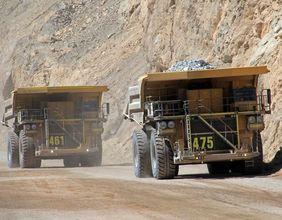Highlights
- Volvo CE rolls out electric wheel loader on rent-to-rent model
- Fulton Hogan partners for 5-year electric transition
- Zero-emissions machine targets diverse sectors in Oceania
Volvo Construction Equipment (part of Volvo AB (STO:VOLV-B)) has introduced a transformative step towards sustainable infrastructure development in Oceania through the launch of its L120 Electric wheel loader, now supported by a rent-to-rent business model. This initiative aims to lower adoption risks for contractors and operators across the region, promoting broader access to clean technology.
Successful Debut with Fulton Hogan
The inaugural deployment of the L120 Electric took place with infrastructure services company Fulton Hogan, following a six-month trial of a pre-commercial prototype in New Zealand. The outcome was encouraging enough to pave the way for a five-year agreement, including 2,000 operational hours per year and integrated servicing.
This collaboration underscores a shift in the construction landscape, where emission-free operations and long-term cost-efficiency are driving decisions. Fulton Hogan's transition to electric equipment is not only a move towards environmental responsibility but also demonstrates a viable alternative to traditional diesel-powered machines.
Features Designed for the Future
Weighing 20 tonnes and offering a 6-tonne lifting capacity, the L120 Electric is engineered to meet demanding operational needs while delivering significant environmental benefits. Key features include:
- Zero exhaust emissions
- Near-silent operations
- Lower lifetime operating costs
The loader is suitable for a broad range of industries such as urban infrastructure, recycling, forestry, agriculture, and port logistics—sectors increasingly focused on decarbonisation and cost efficiency.
Strategic Rent-to-Rent Model
Volvo’s rent-to-rent model enables customers to access the L120 Electric without the upfront financial burden of ownership. Instead, users enter contractual agreements that include regular servicing, strengthening long-term relationships between the OEM, dealers, and customers. The model enhances flexibility for businesses looking to adopt electric machinery without long-term capital risk.
This leasing approach supports the broader trend of sustainable transformation in construction practices, allowing companies to trial, adapt, and commit to clean technology in stages.
Aligning with Broader Market Dynamics
While Volvo AB does not fall under the ASX 200 category, the move aligns with a growing trend across major indices like the ASX 200, where sustainability-focused solutions and electrification are gaining traction among both industrial and investor communities.
Volvo’s rollout of the L120 Electric wheel loader in Oceania represents more than just an equipment launch—it’s a blueprint for how sustainability, innovation, and operational flexibility can converge to reshape the future of construction.




